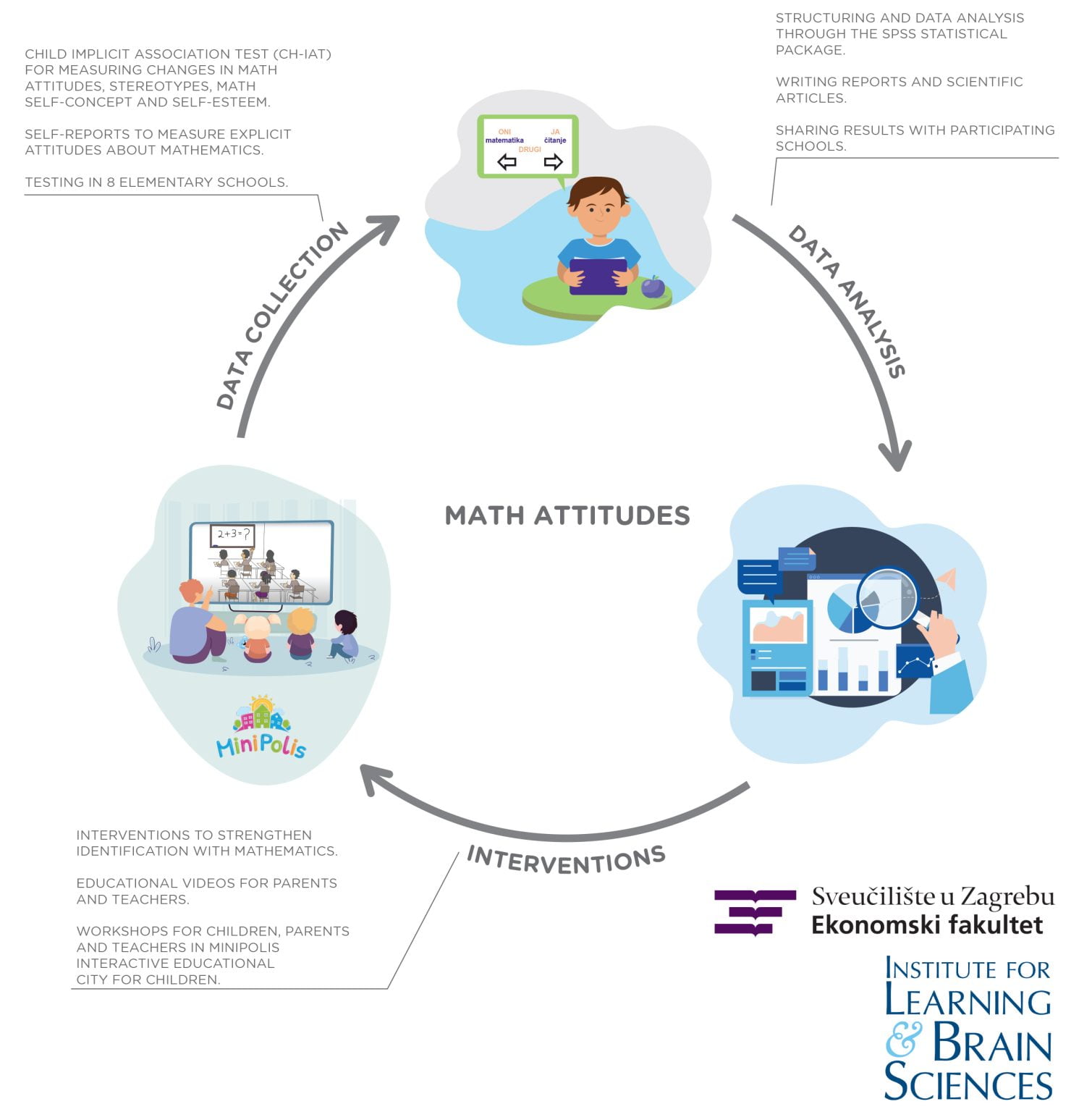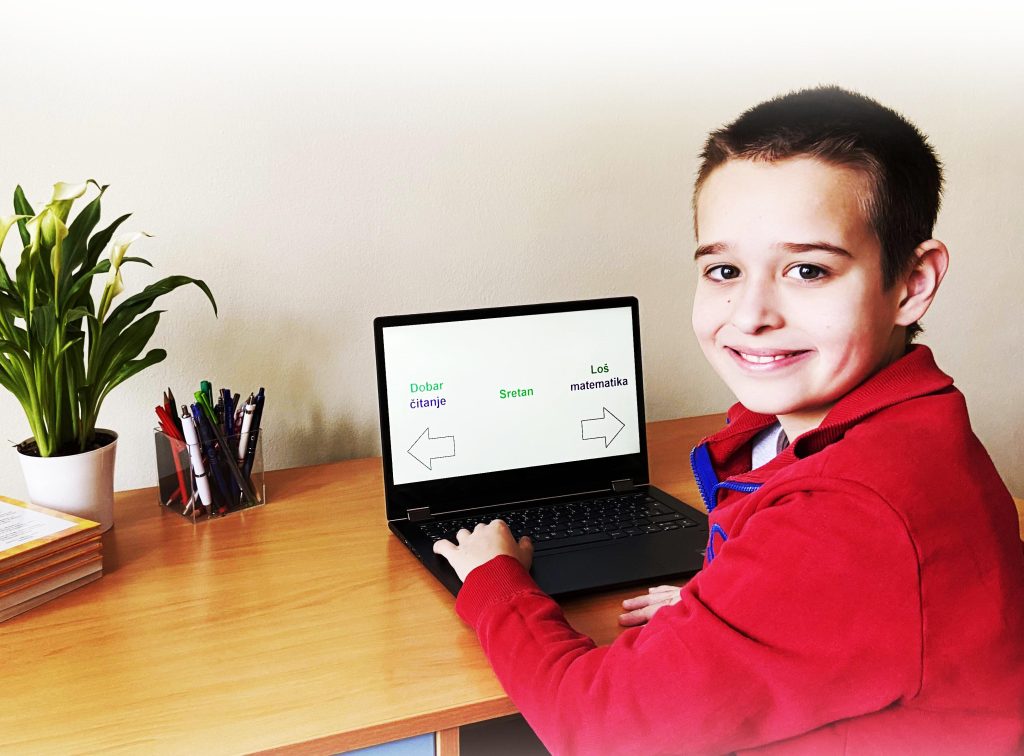Assoc. Prof. Ružica Brečić, Ph.D.
Croatian School Children’s Attitudes About Mathematics: Evaluation and Outreach Strategies for a More Effective Curriculum Reform (MATH ATTDS)

| Project code: PZS-2019-02-9814 |
| Institution: University of Zagreb Faculty of Economics and Business |
| Project Co-Leader: Dr Dario Cvencek, University of Washington |
| Project duration: 01 October 2019 – 01 May 2023 |
| Project website |
Education is the most powerful tool to change the world. Everyday training through formal education is crucial for the development of society and is of great importance for anyone who wants to succeed in their social and professional development. Early acquisition of skills, primarily numeracy skills, is key to further successful career development.
Math Attds is an interdisciplinary project led by economists and psychologists. The project monitors and evaluates the socio-emotional learning of primary school students and examines changes in attitudes about mathematics, math self-concept and children’s self-esteem. The Implicit Associations Test and explicit measures (self-reports) are used to measure change. These measures provide a new way to track positive changes in students’ beliefs and attitudes about math over time. As part of the project, ways of simple management of implicit and explicit measures for the assessment of attitudes about mathematics, math self-concept and self-esteem were developed, and methods are adapted for use in Croatia. The combination of implicit and explicit measures provides useful, standardized metrics for quantifying achievement across the school environment throughout the academic year.
In order to share the results of the project with teachers and parents and explain their significance for everyday practice with children, new communication strategies are being developed. To this end, videos are produced to help parents and teachers monitor children’s learning. The video materials convey the results of research conducted as part of the project and the scientific discoveries of world experts. The video materials are posted on the official website of the project, and on the social networks YouTube and LinkedIn.
Also, interventions are proposed to strengthen the student’s identification with mathematics in order to measure how much the interventions change the student’s implicit and /or explicit attitudes about mathematics and math self-concept. In addition, educational workshops are organized for children, parents and teachers in order to successfully apply the results of this project in everyday practice, all with the aim of encouraging children to use their full potential.
The project is the result of cooperation between the Faculty of Economics and Business, University of Zagreb and the Institute for Learning & Brain Sciences, University of Washington.











